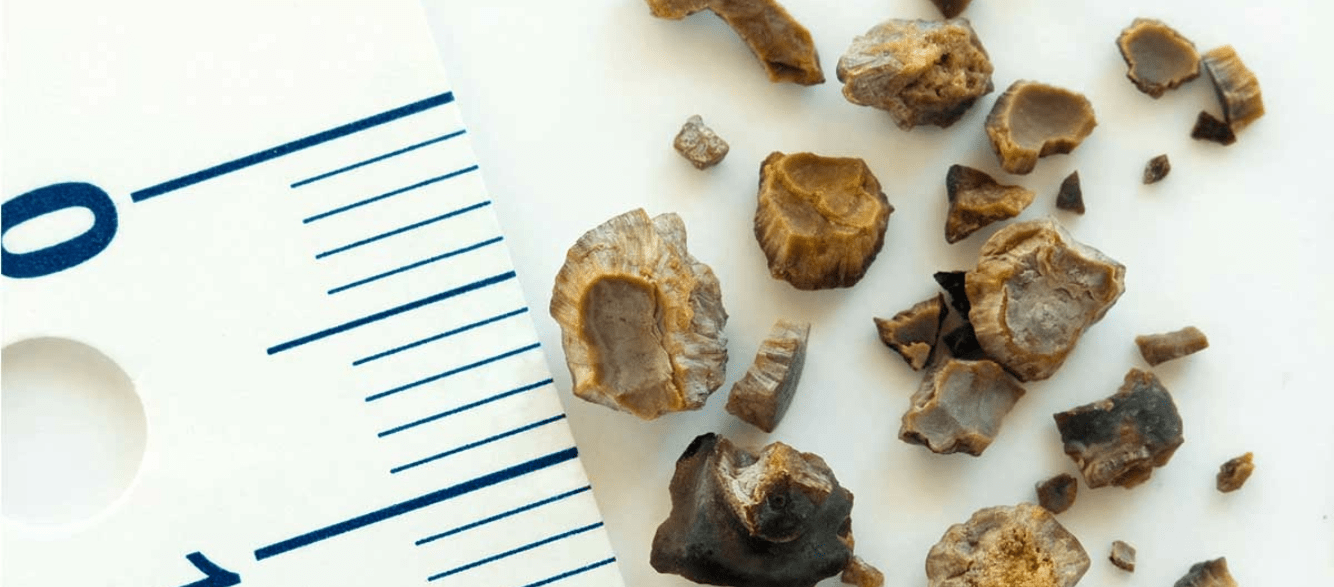Kidney stones, also known as nephrolithiasis, renal calculi or urolithiasis are solid piece of minerals and salts that form inside your kidneys. Diet, excess body weight, certain medical conditions, some supplements and medications are some of the predisposing factors for kidney stones. Kidney stones may affect any part of your urinary tract, from the kidneys to the urinary bladder. You may feel a little discomfort when passing out the kidney stones. The stones usually cause no permanent damage if they're detected early.
Symptoms Of Kidney Stones:
Generally, a kidney stone is asymptomatic until it moves around within the kidney or passes into one of the ureters. Ureters are tubes that connects the kidneys and urinary bladder. When a kidney stone is present in the ureters, it may block the flow of urine and cause the kidney to swell and the ureter to spasm, which can be extremely painful. You may also encounter these symptoms:

- Acute sharp pain at the side and back, below your ribs
- Pain that radiates to the lower abdomen and groin
- Pain that comes and goes and fluctuates in severity
- Burning sensation or pain while urinating
- A persistent need to urinate, urinating more often than usual or urinating in small amounts
- Red, pink, or brown urine
- Cloudy and foul-smelling urine
- Nausea and vomiting
- Fever and chills indicating presence of infection
When Do I Seek Medical Attention?
Kidney stones should not be taken lightly. You should seek medical attention immediately if you are experiencing worsening pain or having an infection. Please make an appointment with your doctor if you are having:
- Severe pain that causes you to not being able to sit or find a comfortable position
- Unbearable pain
- Pain associated with nausea, vomiting, fever or chills
- Blood in your urine
- Difficulty passing urine
References
1. https://www.kidney.org/atoz/content/kidneystones
2. Kidney stones - NHS (https://www.nhs.uk/conditions/kidney-stones/ www.nhs.uk)



